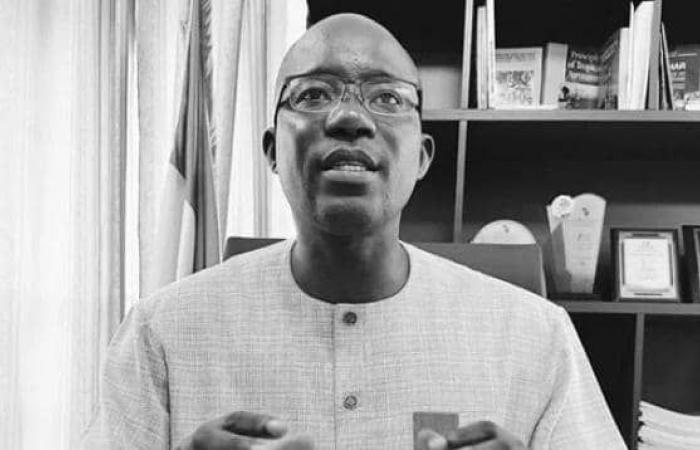A pure product of Isra, where he is in his 20th year, Moustapha Guèye climbed all the ranks before becoming general director. From Thiès to Bambey via Tambacounda, Kolda, Saint-Louis and Dakar, he attended all the centers of the Senegalese Institute of Agricultural Research. He knows Isra like the palm of his hand. For recovery, the prospects and the roadmap are clear. He reveals a good part of it after an inventory.
The main link in agricultural research, the Senegalese Institute of Agricultural Research (Isra) is a strategic arm of the Ministry of Agriculture, Food Sovereignty and Livestock. It also participates, according to its general director, Moustapha Guèye, in the development and implementation of projects and programs, such as plant, animal and forestry production, but also in supporting agricultural value chains. Despite this important role, Isra is not exploiting its full potential. Several factors explain this. Among them, the lack of resources. But, in a dynamic of food sovereignty driven by the new authorities, optimism is required on the part of general management. According to Mr. Guèye, significant efforts have been made in supporting Isra to take care of part of its needs, in particular structural costs, salaries and basic operations, both at the level from the general management as well as from the centers. “Now, what remains is to ensure regular and lasting funding for research issues and especially production programs. We must remember that we are in research. This allows us to set up production programs, particularly for seeds, vaccines, fruit plants,” indicated the director general of Isra.
Today, reveals Moustapha Guèye, the Isra budget, in terms of structural costs and management of research issues, is around 10 to 15 billion FCfa per year, half of which is provided by the State for financing fixed costs, especially salaries.
Attract the private sector
If, at its beginnings, Isra was alone in research, it must now coexist with many actors, whether universities, independent centers, civil society organizations… Far from seeing this diversity as a threat, the CEO believes that we must instead be open and in a dynamic of synergy of actions.
In this momentum where the question of financing is pressing, Mr. Guèye believes that the private sector has an important role to play. “He was on the fringes of our sphere of competence for a long time. But, we know that without him, without the actors at the base, our research will not be well valued. To attract him, he believes that research is a promising niche. “We are generating technologies and they need to be scaled. The scientific sector must be linked to the development sector. These are all opportunities that can encourage private individuals to invest in the agricultural sector by giving much greater value to the innovations that are generated. Innovations are waiting to be multiplied and scaled, especially in agricultural areas,” he argued.
Livestock breeding at the heart of actions
To the question of whether several activities are oriented towards agriculture to the detriment of livestock, the Dg of Isra responded in the negative. “It’s just a perception. Livestock breeding is a long-term activity while agriculture is a much more seasonal activity. Today, after three months, you can see results. The appreciation for agriculture is much more visible than when you analyze research on the animal domain. But, it is a question of communication and perception. Today, Isra has a large national breeding laboratory for veterinary research, which is recognized nationally, sub-regionally and internationally,” he insisted. As proof, argued Moustapha Guèye, the Institute has a vaccine production unit which allows it to place around ten vaccines on the market to be able to protect the national sector while selling in the sub-region. Furthermore, Isra has two zootechnical centers exclusively dedicated to breeding. They are in Dahra, in the sylvo-pastoral zone, and in Kolda, in the Casamance zone.
In line with “Vision Senegal 2050”
Isra being an autonomous structure attached to the Ministry of Agriculture, it is expected to play an important role in achieving the objectives of “Vision Senegal 2050”, according to its director general. Moustapha Guèye thinks that the research is essentially aligned with these references. For example, for the peanut sector, Isra is in the process of strengthening its contribution towards the reconstruction of seed capital. The same dynamic is noted in fish farming, fishing and livestock breeding.
However, for greater efficiency, Mr. Guèye indicates that Israel will need a new boat. According to him, it must be understood that fisheries resources are mobile. “We have more than 750 kilometers of coastline and we must be able to evaluate them, monitor them and make proposals in terms of development plans and reforms. Today, the State needs to know is it important, can we estimate the needs of fisheries resources in our territory, in our zone, but also how we must exploit, is -can we offer biological rest, should we create exclusive zones, etc.? So, Israel is, today, very committed to the four to five areas assigned to it in achieving food sovereignty.”
The beautiful promises of wheat
Eight. This is the number of wheat varieties approved in Saint-Louis. After this important step, the Institute, announces its general director, is in the process of setting up a program to interest the areas in which wheat is produced, but also to attract the giants who want to invest in this sector.
Aware that imports still remain dominant, Israel is setting the milestones to support “a sector that will produce wheat made in Senegal”. “Today, we are on the seed production side. This is the basis for developing a sector, you must first secure and regularly supply wheat seeds. In the next campaign, the minister has made a special allocation to improve and equip the Gie with fertilizers and agricultural materials, to be able to interest the populations in farming. We currently have around two to three tonnes of wheat seeds available,” he informed.
If the promises are confirmed, maintains Moustapha Guèye, within two to three years, Senegal will be able to significantly increase the areas of wheat seeds. “We must first prepare, structure and also reassure the populations. Normally, within five years, if this dynamic continues, by having seeds, by supporting the Gie, we will be able to create enthusiasm for this new culture,” he said.
292 tonnes of pre-basic seeds available
In this dynamic of food sovereignty, Isra can boast of satisfactory results. Today, its seed capital is estimated at more than 292 tonnes of pre-basic seeds, 150 tonnes of peanut seeds, 10 tonnes of millet seeds, five tonnes of cowpea seeds… If we are to believe its general director , with the constant support of the authorities, Isra can achieve seed self-sufficiency in rice, in all species, on the horizon 2026.
However, these prospects are, in part, linked to securing the Institute's land. According to Moustapha Guèye, Isra is facing significant land pressure. “We have sent a lot of correspondence along these lines to the various ministries concerned. The authorities have promised us to take all measures to ensure that these attacks stop and that these land assets can be valued through the private sector. This is the case in Sangalkam, Bambey, Kolda…
Oumar Fédior






